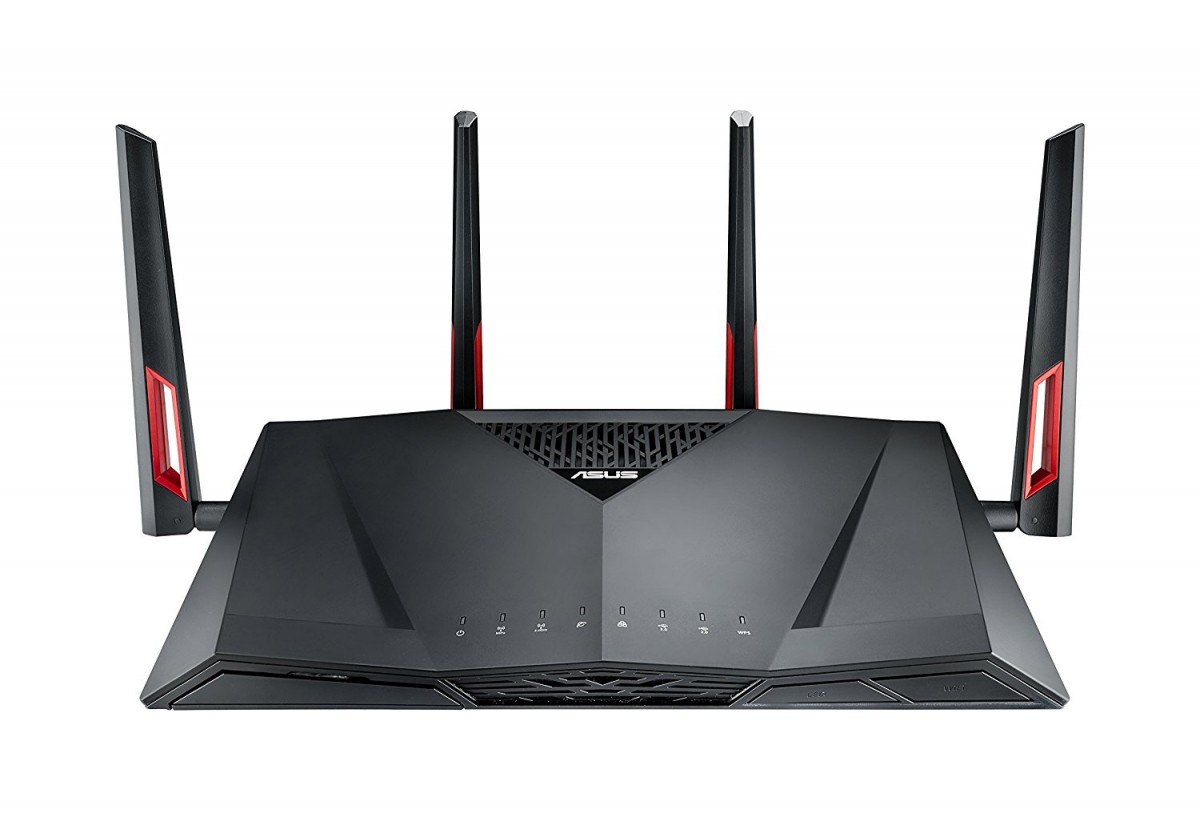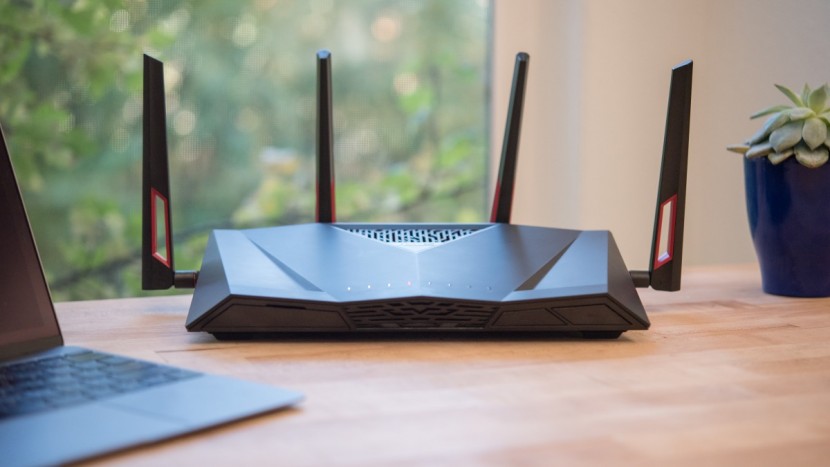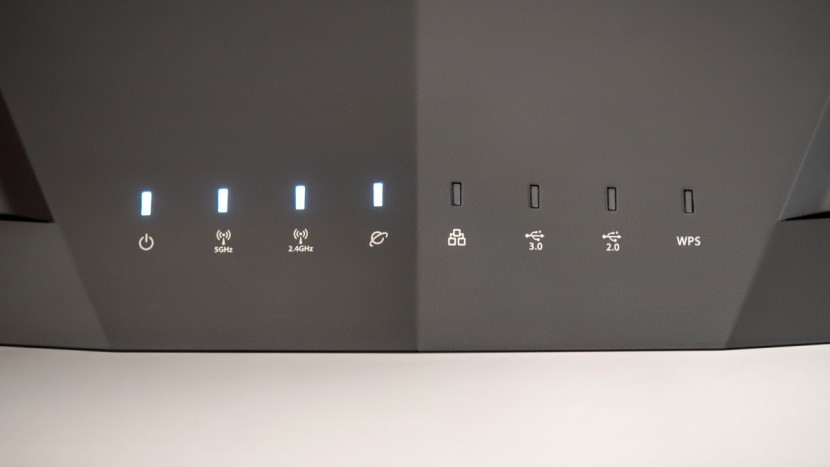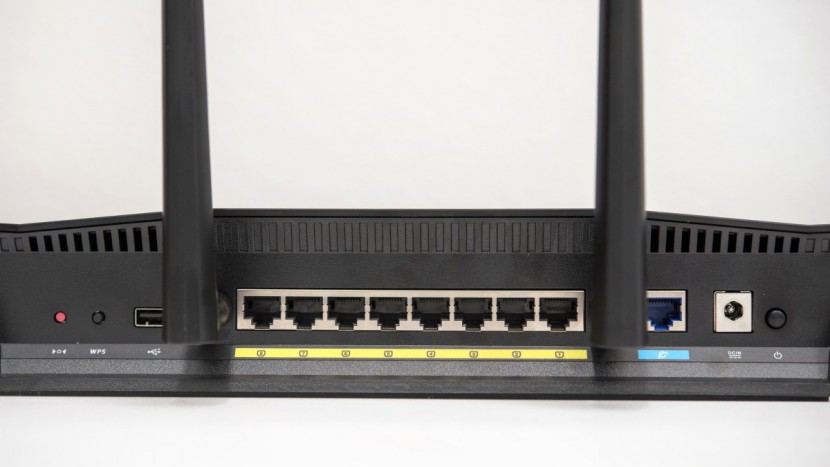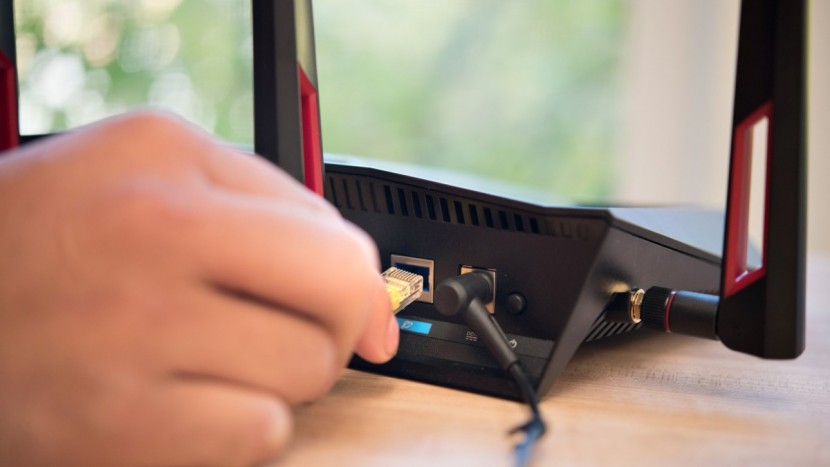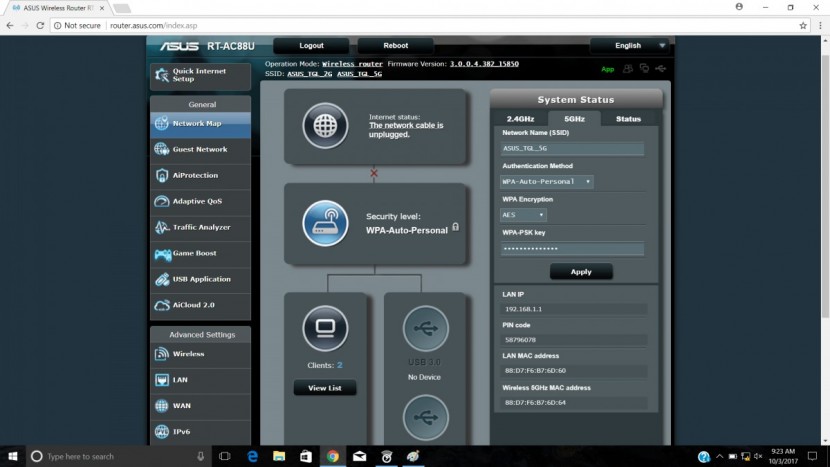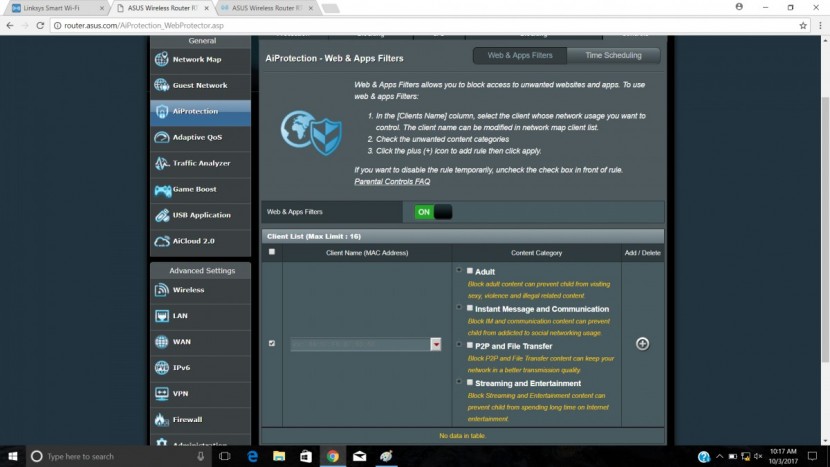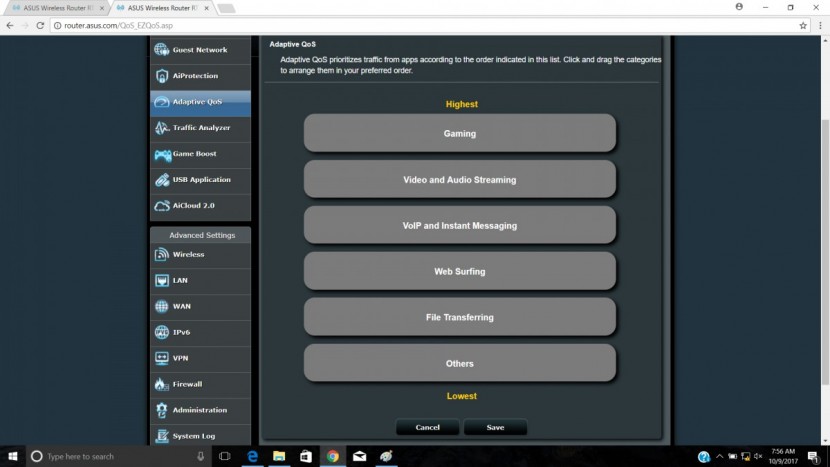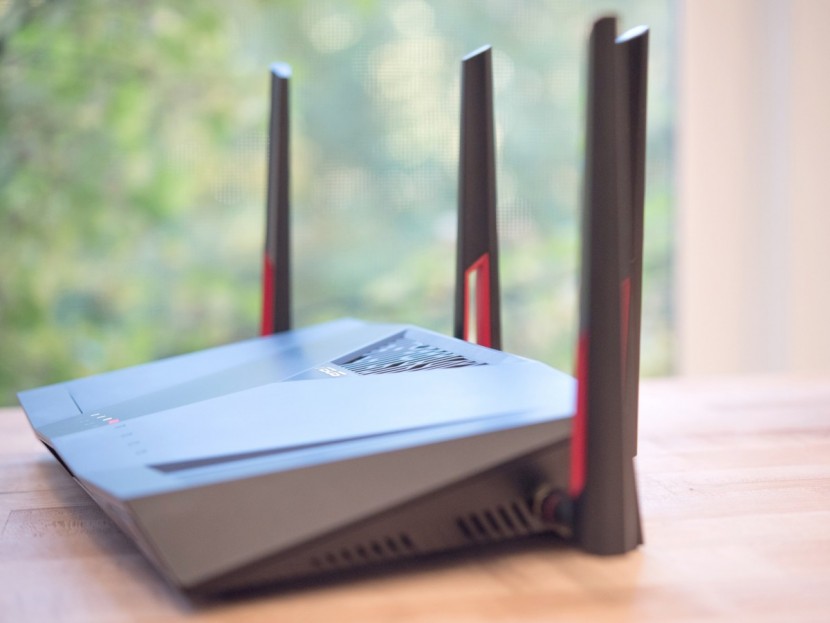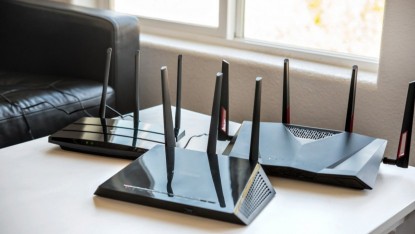ASUS RT-AC88U Wireless-AC3100 Review
Our Verdict
Our Analysis and Test Results
We bought the best available and tested them side-by-side, ranking and scoring their performance in five weighted metrics. These are Ease of Use, Features, 2.4 GHz. Throughput, 5 GHz. Throughput, and Range, with the following sections describing how the ASUS RT-AC88U performed against its peers.
Performance Comparison
Features
Comprising the most weight out of all of the testing metrics, our Features metric takes credit for 25% of the overall score. We awarded points based on if the router had certain features, notably the presence of MU-MIMO, beamforming, the ability to turn the indicator LEDs on and off, the number of LAN and USB ports, and if there is the ability to reset the router wirelessly. The ASUS RT-AC88U did very well comparing quite favorably with the rest of the pack.
First off, the ASUS RT-AC88U earned some immediate points by having both MU-MIMO and beamforming capabilities. These features are explained more in-depth in our Buying Advice article. These features act to dramatically increase the overall speed of your network, especially if there are multiple devices on your network.
The ASUS RT-AC88U is dual-band, having 2.4 GHz. and 5 GHz. capabilities and conforms to the 802.11ac wireless specification and supports IPv6. In terms of security, this router supports WPA/WPA2 Personal, WPA/ WPA2 Enterprise, WEP, TKIP, and AES Encryptions and has 512 MB of DDR3 RAM. You can also set up an unsecured guest network if you have company over, and the ASUS RT-AC88U has a built-in VPN network.
Next, we looked at if you can remotely reset the router. This feature is particularly handy if you are planning on stashing this product out of the way in the corner of your home office. Cycling the power is the first step to solving most connectivity issues, and doing it remotely allows you to leave the router in its concealed location. We also tested the ability to control the brightness of the indicator LEDs, finding that you can turn them all off or on with the press of a button on the front of the router.
You can manage these features from either a web browser interface or its companion smartphone app. The ASUS RT-AC88U has a whopping 8 LAN ports, allowing you to have many wired connections. In addition, there are also two USB ports — one 2.0 and one 3.0.
Ease of Use
We evaluated how easy it is to use each product for our next metric. We unboxed each product, judging the difficulty of updating the firmware — if necessary — and the effort required to go through the initial network setup. We also looked at how intuitive and user-friendly the interface is, how easy it is to implement parental controls, and if the router had QoS capabilities. The ASUS RT-AC88U absolutely dominates the field.
While the ASUS RT-AC88U did require a software update out of the box, this was a relatively painless process. It was also very easy to go through the initial network setup process, though we did encounter an occasional issue with the automatic wizard. We had a much better experience using the browser-based interface than the wizard, so this is something to consider if you do run into difficulties setting it up.
We found this interface to be straightforward to use — the ASUS RT-AC88U is one of the best among the WiFi routers we tested for ease of use. This router also has parental controls, which were relatively easy to set up, though it took us a little extra time to locate this feature in the menus.
We particularly like that the content controls gave you tons of versatility, allowing you to restrict content by genre rather than trying to accomplish the somewhat impossible task of entering the web address of every site that you want to block access to. You can also limit internet access by time, and you can set specific devices for these controls to apply to, rather than applying them to everyone on the network.
The ASUS RT-AC88U also lets you set up guest networks for this router. You can enable up to six networks, three per bandwidth. You also have the option of setting a password for each one or leaving them unsecured and setting a time limit for how long the internet will be available through these networks.
Finally, this device supports QoS, or Quality of Service, and has one of the easiest to use implementations of this that we have seen. You can select between adaptive, traditional, or bandwidth limiters. For adaptive, you select what mode best suits your uses, such as gaming, media streaming, or web surfing. The router will automatically prioritize devices to optimize your network for your uses. Traditional lets you manually set the device priority, and bandwidth limiter allows you to limit the maximum upload and download speed for each device.
2.4 GHz. Throughput
This metric accounts for 20% of the overall score and evaluates the ASUS RT-AC88U on how quickly it can transmit data over the 2.4 GHz. band. The ASUS RT-AC88U's performance may seem on the low side.
To determine scores, we compiled the results of five different tests using the iPerf3 software. To start, we did a short distance test, with only about 10' between the router and the test computer. The ASUS RT-AC88U delivered an excellent performance in the line of sight version of the test, having an average throughput of 51 Mbits/s.
However, it did not do quite as well in the obstructed version of the test. This time, there was a wall between the computer and router, with the relative performance of the ASUS RT-AC88U dropping slightly, as highlighted in the following chart.
The ASUS RT-AC88U continued to perform quite well in the medium distance tests, again delivering a second-tier performance. The ASUS RT-AC88U averaged about 39 Mbits/s in the line of sight test, comparing quite favorably with the rest.
We did the obstructed test with about 35' separating the router and the computer, with a wall and solid door blocking the signal for the obstructed version of the test. The ASUS RT-AC88U was relatively unaffected by this, clocking in at 38 Mbits/s.
Finally, the last test for this metric was the long-distance test. We separated the router and computer by about 70' with some walls obstructing the signal. The ASUS RT-AC88U measured in at an average of 27 Mbit/s. This test is where the ASUS RT-AC88U shined, putting down the fastest data rate of the entire group.
5 GHz. Throughput
Similar to the previous metric, this metric is responsible for 20% of the overall score. We used an identical set of tests as the previous metric, this time conducting them using the ASUS RT-AC88U's 5 GHz. band. Again, this router did reasonably well.
The ASUS RT-AC88U didn't impress us in the short distance, line of sight test.
But it did do quite well in the obstructed version of the test, finishing at the top of the pack.
Moving on to the medium distance tests, the ASUS RT-AC88U did a decent job, though it finished roughly in the middle of the pack in both tests.
In the line of sight and obstructed tests, the ASUS RT-AC88U put up scores of 204 Mbit/s and 186 Mbit/s, respectively, average among the group.
Finally, we did the long-distance throughput test. The ASUS RT-AC88U did very well, delivering an average rate of 37 Mbits/s — the fourth-fastest among our favorite WiFi routers.
Range
Our final metric, Range, is responsible for the remaining component of the total score — 15%.
To test this, we selected a 5-minute video on YouTube, then streamed it on our test computer at set distances away from the router in 720p and noted when the stream became interrupted. When using the ASUS RT-AC88U, we were able to play the video at a whopping 158'.
Should You Buy the ASUS RT-AC88U Wireless-AC3100?
Overall, the ASUS RT-AC88U is a top-performing router. While this model didn't take home the top spot in our throughput or range tests, it is extremely easy to use, offers many features and functions, and should provide more than enough performance for most homes and offices.
What Other WiFi Routers Should You Consider?
While the ASUS RT-AC88U Wireless-AC3100 is a great router, it has many features the average user won't ever touch. Especially if you are shopping on a budget, the extra expense for these added features doesn't add up. Budget-conscious shoppers should look at the NetGear Nighthawk AC1750 (R6700v2), our top-pick for value. If you are interested in a mesh network, the eero Mesh WiFi Router also presents an outstanding value.


